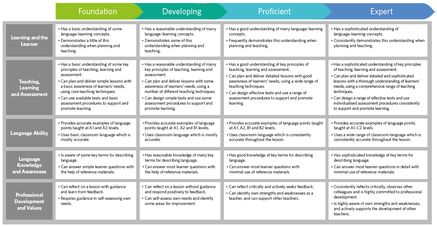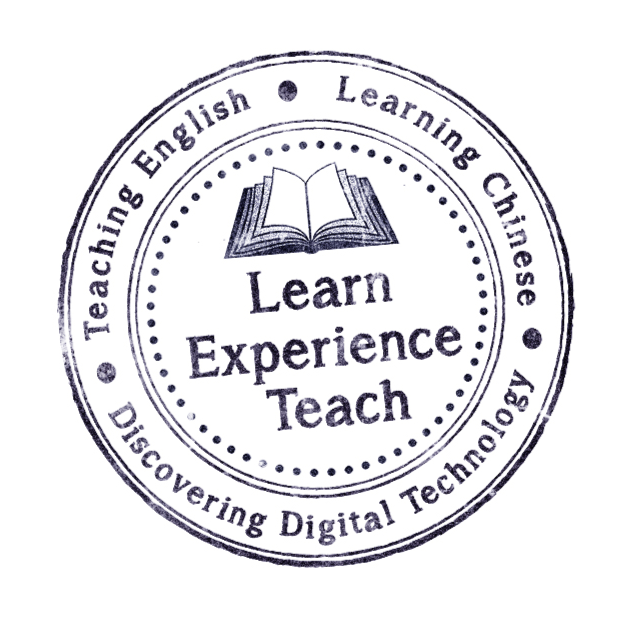ELTeach Symposium
On 24th April 2015, I had the honour of joining the Symposium on English Teacher’s Professional Development Through Online Self-Access Learning, an expose on the current situation of English Teacher Training/English Teaching in the China context and an introduction to a new, online English Teacher Training platform for local teachers: ELTeach.
Symposium Topics
The Training of English Teachers in China: Challenges and Solutions
English Teachers’ Professional Development through Online Self-Access Learning
Rethinking Professional Development in English Language Teaching
First hand accounts of the ELTeach platform users
The Current State of English Teachers’ Professional Development in China
According to the speakers there is no good quality training, nor a systematic course that is thorough enough to meet the needs of English Teachers in China. Current offerings are criticised for being too theoretical, with little focus on practical experience. Many teachers are sceptical of Training Schools, viewing them as just in it for the money. And many others claim it’s still unclear what knowledge a teacher ought to have.
My Own Personal Professional Development
This got me thinking about Cambridge English Teacher, the online professional development resource I use to keep myself up-to-date with the latest developments in the ELT industry. CET is an online platform that hosts webinars, forums, expert advisors and a database of teaching and learning materials for English teachers. CET have developed their own CET Framework which outlines the key competences of an English Teacher: Language Ability, Language Knowledge & Awareness, Learning and the Learner, Professional Development & Values and Teaching, Learning & Assessment:

These competences lie on a continuum from novice to expert user. The idea is that you can use the framework to self-assess and use CET’s database of online materials and courses to improve your own skills. In this way, I see online training in a similar format, as a viable option for English teachers in China.
One Possible Solution
The Symposium outlined the problems facing teachers wanting to upskill and improve their teaching and language skills. The main issue being a lack of good quality, affordable, easily accesible training. One viable solution, then, may be online learning, in the form of the ELTeach platform. The idea was put forward as an opportunity for teachers to learn anytime, anywhere. Such flexibility may improve learning outcomes, as issues of cost, time and travel, are reduced.
ELTeach vs. CET
Whereas CET focuses on 5 core skills for English Teacher Professional Development, ELTeach focuses on two: English for Teaching and Professional Knowledge for ELT. Both take 30-50 hours to complete. Teachers start by taking a test, and according to band descriptors you can judge your capabilities of English for classroom use, and start the course at the appropriate place.
English for Teaching: a speech recognition tool allows you to record your voice and practice actual classroom language (unlimited access).
Professional Knowledge for ELT: focuses on methodology (teaching methods and the four core language skills plus vocabulary). Allows teachers to ‘think pedagogically’
Key Principle of ELTeach: Differentiates between usable and useful knowledge. For example, How do I get from A to B? Beijing is the capital of China. A fact may be useful once. A strategy may be reused.
Key Stats About ELTeach: So far 15, 000 teachers in 23 countries are using ELTeach to learn the professional language of English teaching.
One of the biggest criticisms of online courses has been completion rates, around 50%. Whereas, the course results so far have a 80-90% completion rate.
My Thoughts
I really like this idea, the freedom for individuals to upskill. Self-directed online English Teacher Development and Training has many advantages: it is self-paced, allows for self-assessment, focuses on core literacy for teachers, is scalable (useful vs. usable for lower level students), and the content uses realia. The tool seems to be efficient (after taking the assessment, you just study what you don’t know), and provides unlimited access to practice (up to 6 months, after enquiry). Unfortunately, I have not had the chance to try out the platform, but perhaps I will ask some teacher friends here in Beijing, and ask for their feedback.
I agree that we need to think and learn differently. Self-access is a game-changer, but only if you actually access the information you need, consume it and apply it in your own context. In that way, I still feel that even the most indepdent teachers still need some form of guidance. Indeed, different forms of support exist for different countries that use the ELTeach platform. Each country-specific course develops an external support. For example, QQ support groups exist in China. I think teachers in China have a lot to gain from such a platform, enabling individuals to improve the quality of their classroom teaching, language ability and professional knowledge, all at once.
“MOOCs etc., change the geography, but they don’t change the map.”
“It’s not ‘one-size-fits-all’, it’s ‘one opportunity (for all)'”
(Donald Freeman @ this Symposium)
Recommended Reading
Freeman, D., A, Katz., P. Garcia Gomez & A. Burns (2015). English-for-Teaching: Rethinking Teacher Language Proficiency for the Classroom. English Language Teaching Journal.
